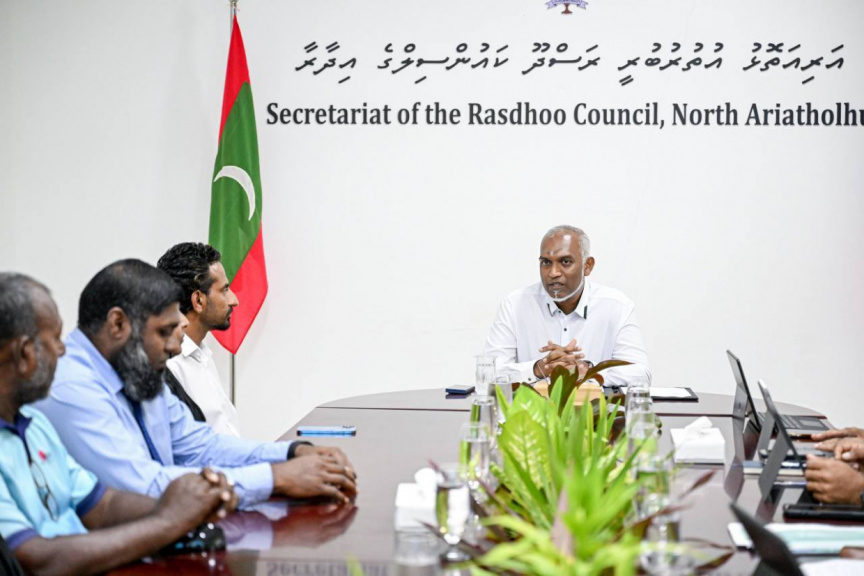
President Dr Mohamed Muizzu meets with the A.A.Rasdhoo Council during his official tour of the atolls. (Photo/President's Office)
President Dr. Mohamed Muizzu stated on Wednesday that it is illogical for councils to generate revenue from land designated for essential public services.
The President emphasized that land allocated for the development of islands and the provision of fundamental services should not be a source of income for local councils.
During his tour of the Alif Alif atoll, President Muizzu visited Rasdhoo, where he addressed the ongoing mosque project. He revealed details surrounding the allocation of land for the mosque, explaining that the Islamic Ministry had requested the Rasdhoo council to facilitate its construction. However, the Rasdhoo council proposed to transfer the land to the Ministry of Islamic Affairs only after receiving a payment, which the President described as "very high," though specific figures were not disclosed.
President Muizzu underscored that in the past, land for mosque construction had never been provided at a cost. He asserted that it is improper for councils to profit from land intended for vital public services.

"When the council allots land for waste management, water, electricity, sewerage, schools, hospitals, mosques, police, etc., it is not logical to make revenue from that land, it does not even make sense," the President stated.
He further noted that amendments he introduced to the Decentralisation Act specifically prohibit councils from charging rent for basic services like mosques. The President urged the Rasdhoo council to reserve land for the mosque's construction, assuring that the project would commence as soon as arrangements are finalized.
The President's amendments to the Decentralisation Act have significantly curtailed the powers of councils, particularly regarding staff recruitment, leasing of lagoons and land under their jurisdiction, and the implementation of development projects. Notably, the amendment now bars councils from charging rent for land or buildings allocated to entities providing essential public services.
Additionally, councils will now receive revenue only after the deduction of state taxes and if they have not defaulted on payments for public services for over six months.
Following the ratification of these amendments by the President, Mohamed Nimal, CEO of the Local Government Authority (LGA), issued a directive to all councils across the nation, instructing them to comply with the new legislation.